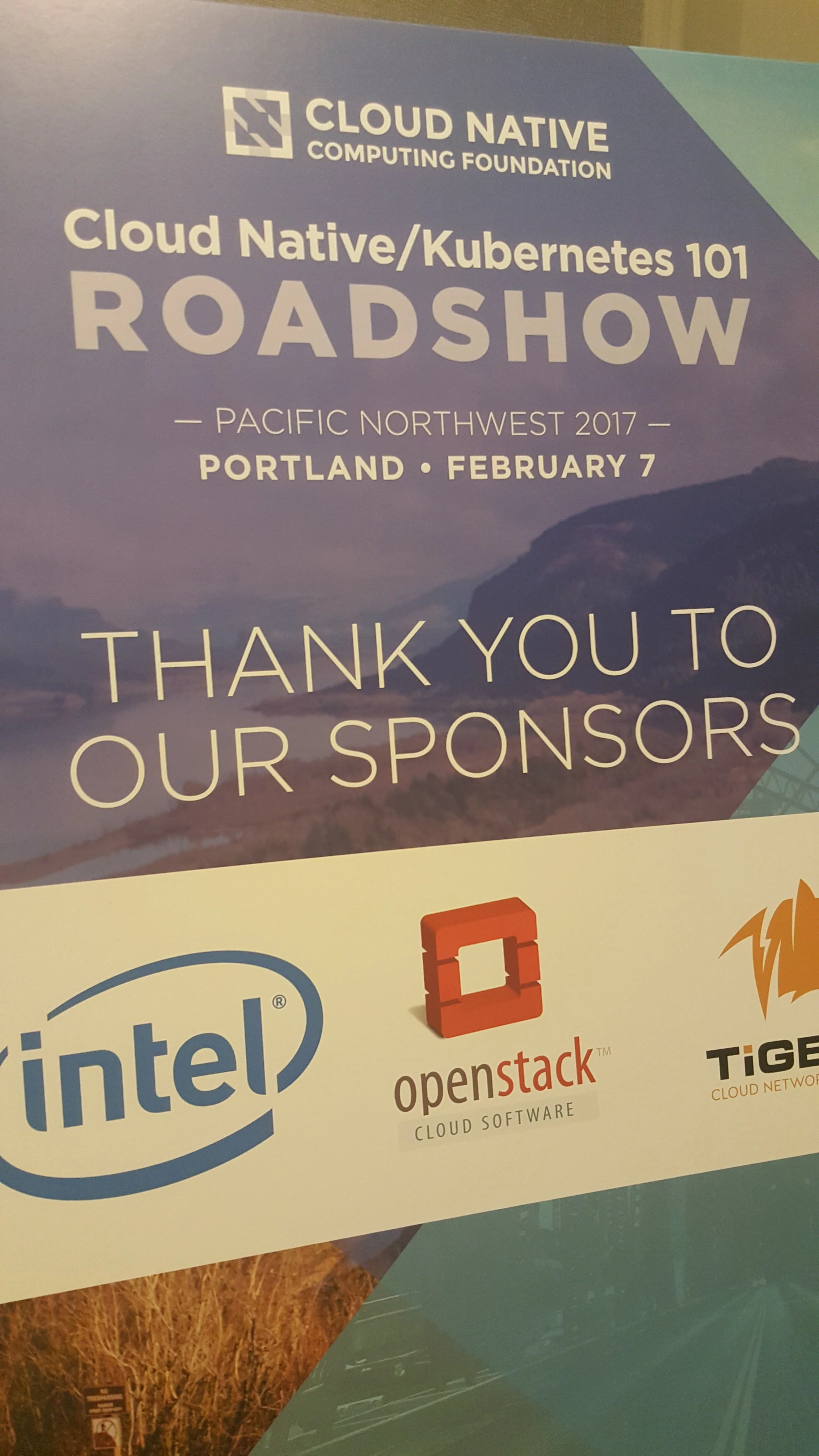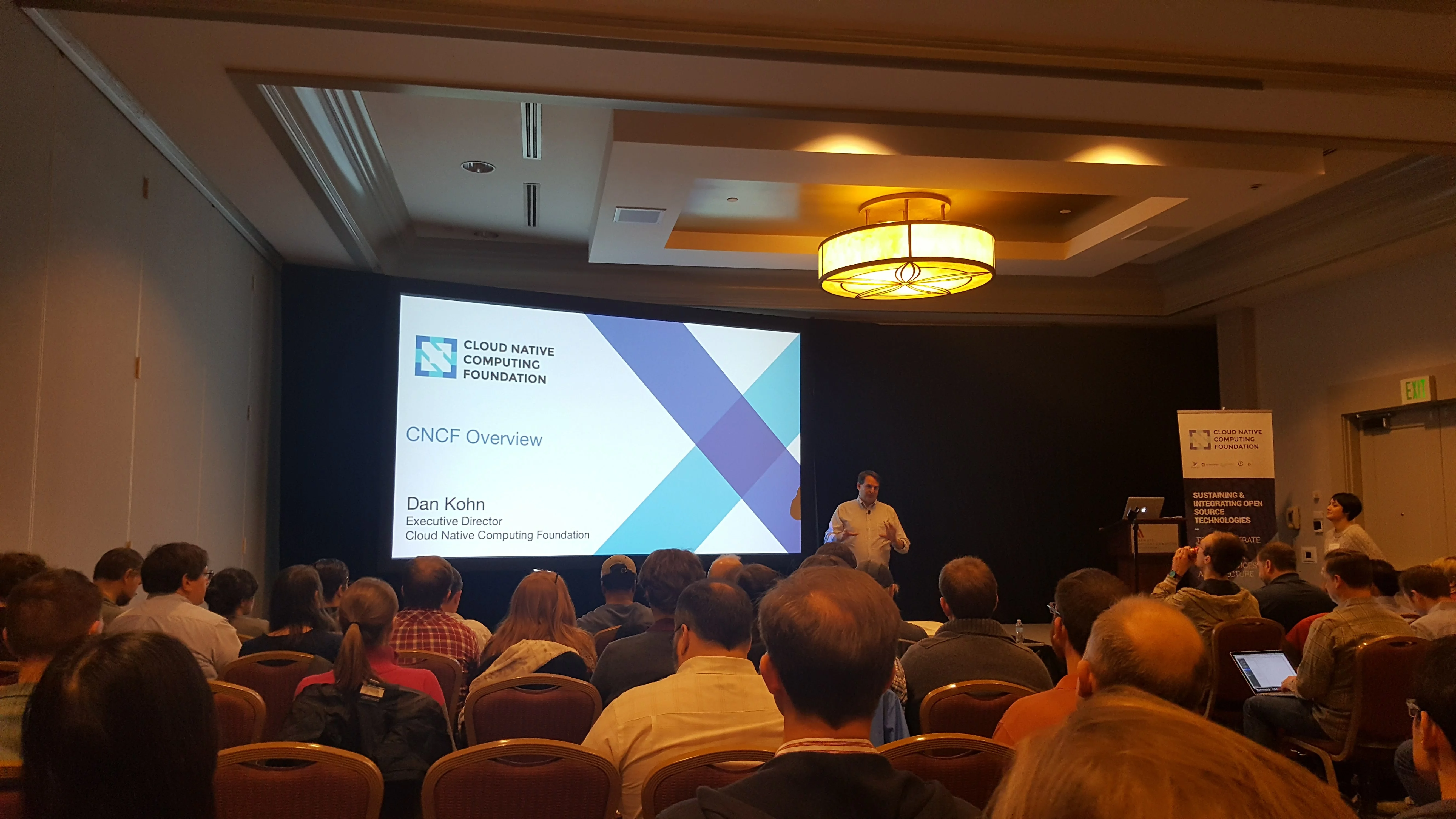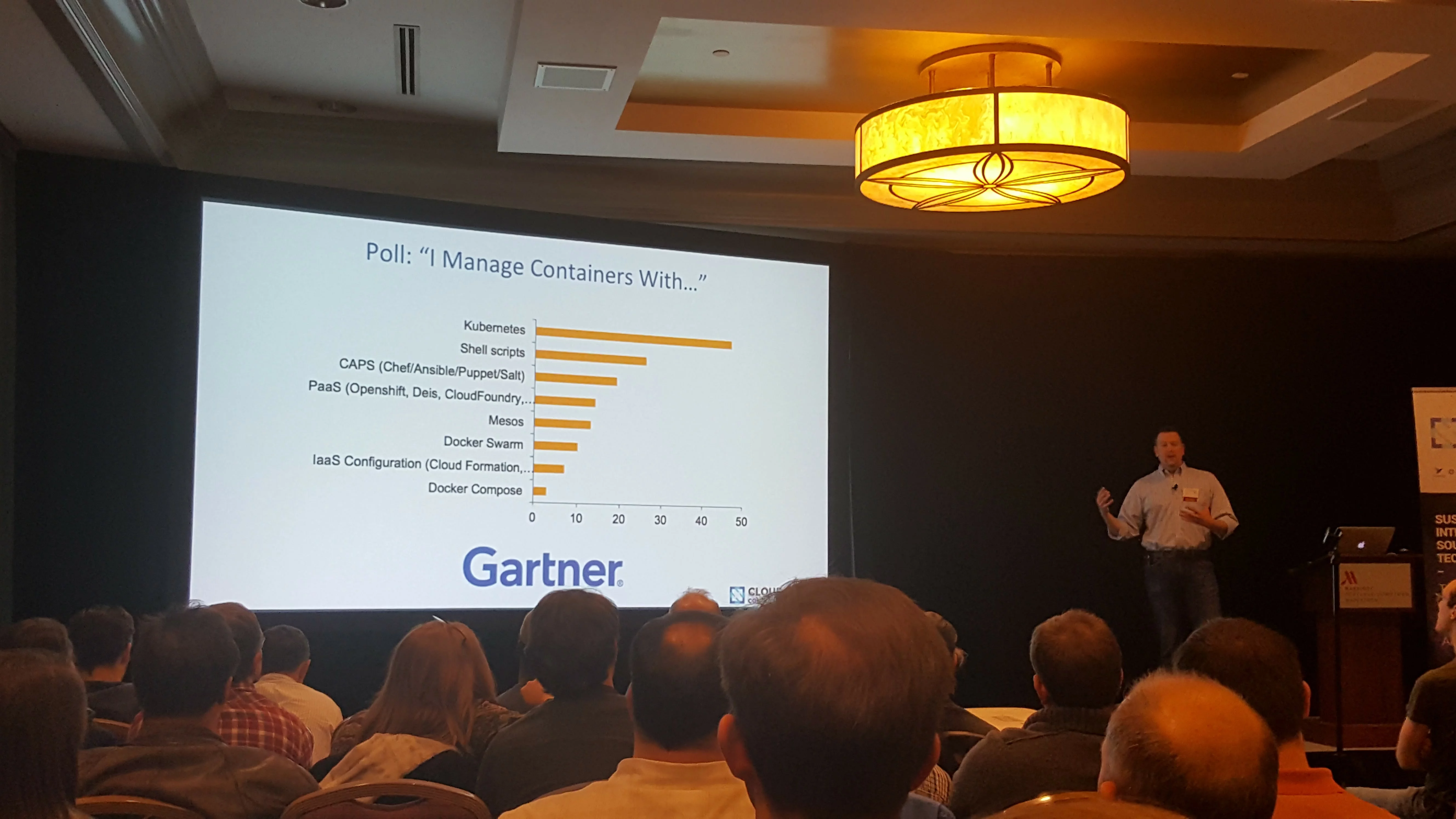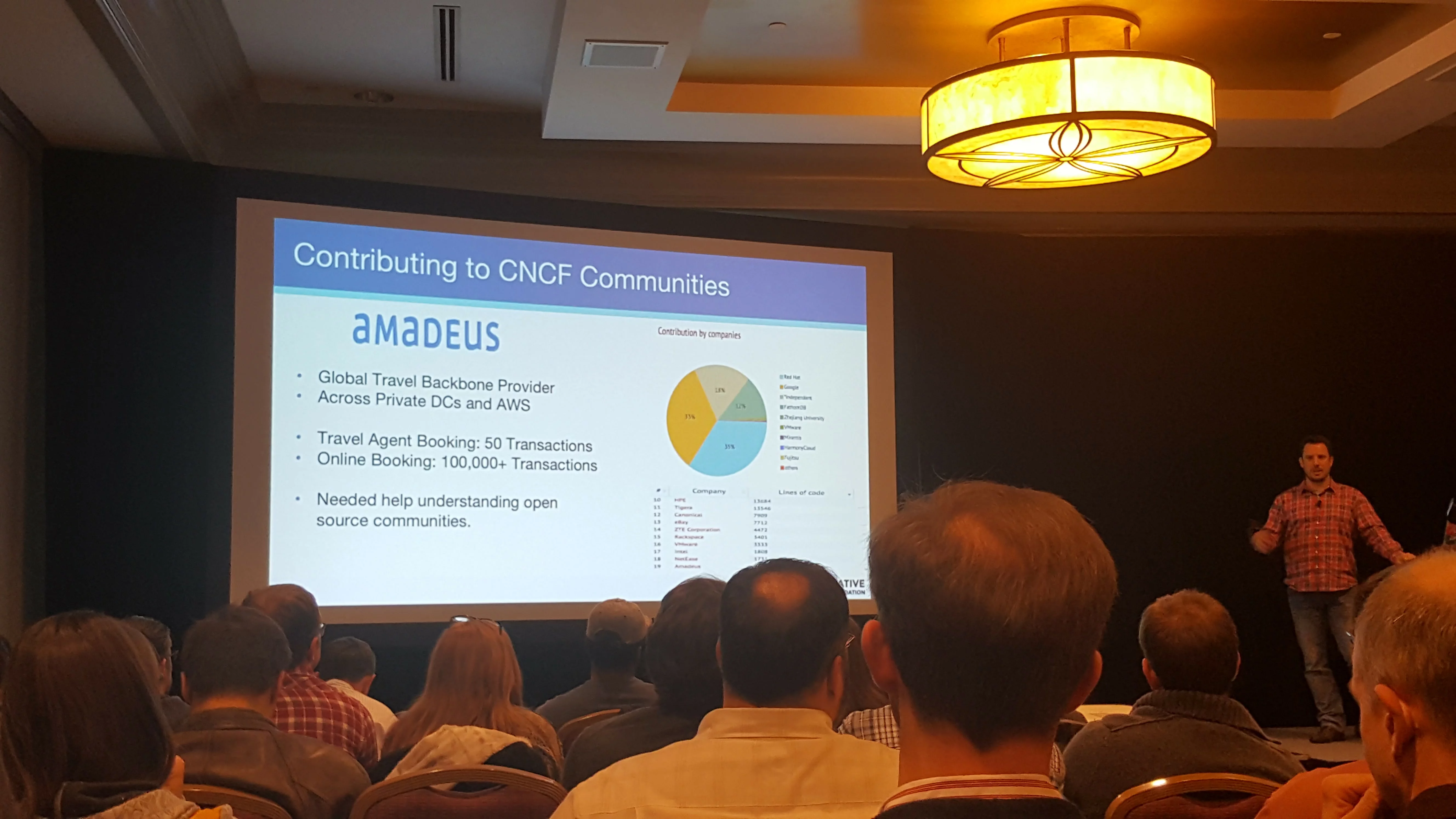
When our team heard there was an event surrounding the deployment of Kubernetes and other cloud native technologies in production, we had to get there. We have a client who is in the same space, and knew the best way to learn about their audience is to meet them face-to-face.
The Cloud Native Computing Foundation (CNCF) hosted this particular event in Portland, Ore. on February 7, 2017. They are an open source project to advance the development of cloud native applications and services.
Of special note was the co-sponsor of the event Women Who Code. With over 1,800 members in the Portland, Ore., area, Women Who Code is a non-profit dedicated to inspiring women to excel in technology careers.

Dan Kohn, the first Executive Director of Cloud Native Computing Foundation led off the afternoon, followed by Isaac Arias, CTO of Apprenda, and Brian Gracely, Director of Product Strategy at Red Hat.
Dan helped bring everything together from a 20,000 foot level, going over the brief history of the cloud. From Sun Microsystems in 2000 with non-virtualized hardware, to Heroku and the rise of PaaS in 2009, and the amazing growth propelled by Docker in 2013. The last half-decade, especially, has seen incredible growth in the space. The context of how we got to this point was valuable.

Isaac Arias from Apprenda dove into Containers 101 and detailed what they are, jobs they execute, and more.
One of the most interesting parts of the event was a question posed to the crowd:
How many of those in attendance use containers? Half of the audience raised their hand.
Then the follow-up question:
How many of those using containers had them in production?
Only two hands were raised.

Red Hat's Brian Gracely finished the afternoon by going over a couple of use cases from Volvo and Amadeus, and then showed off how easily one can manipulate Kubernetes on a laptop.
If there was any doubt at the popularity of Kubernetes, it was put to rest by the simple fact that it is one of the most popular open source projects on Github EVER with over 22,000 users. And we felt the excitement, especially with so many companies, large and small, contributing to it.
Why should marketers attend these type of events?
What did we learn from attending this event? MKG Marketing's analyst Spencer has found that the developers he's worked with always had issues pushing code from development to production and Kubernetes alleviates these problems by allowing development and production to be "the same” so it’s possible to know if something will work on production ahead of time and not have multiple iterations floating around.
Not only is this beneficial to developers, it also helps marketing by ensuring that websites/apps are operating correctly and ad dollars are not wasted by sending paid traffic to a bad user experience.
Most importantly, from a marketer's perspective, attending an event like this only helps in our understanding of the audience, of what's important to them, and we can speak the same language. It increases our knowledge, and we become stakeholders in the same industry of our clients.
(We encountered a murder of crows looking especially ominous at the end of the night, bonus .gif below!)
